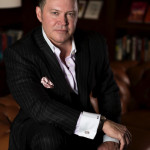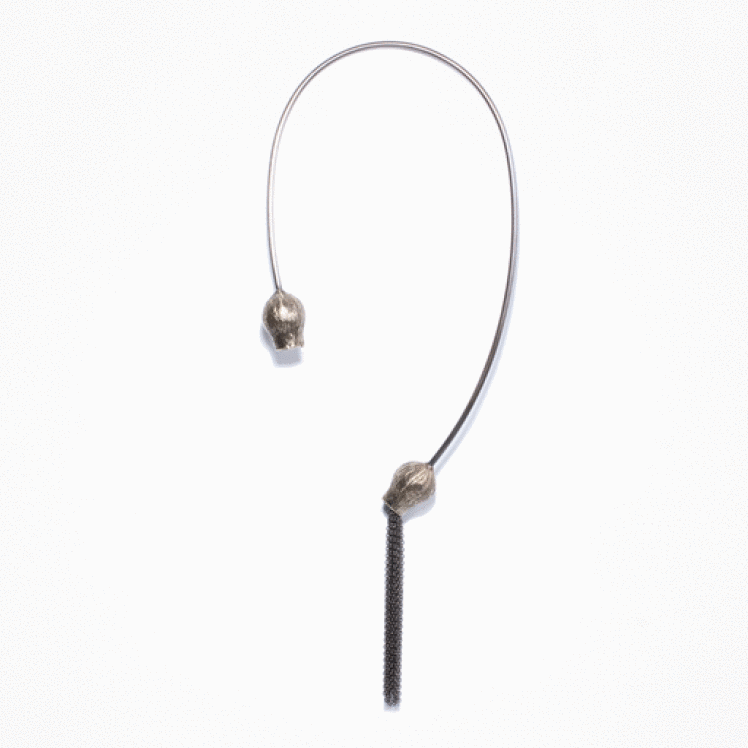
In the book, “Eat, Drink, Heal: The Art and Science of Surgical Nutrition” Board Certified Plastic Surgeon, Dr. Gregory A. Buford advocates for a greater and deeper understanding of the power of nutrition, especially as it pertains to surgical procedures and recovery time.
Tell us about your background; where did the inspiration for your book, “Eat, Drink, Heal: The Art and Science of Surgical Nutrition” arise? Growing up, I was raised to appreciate the power of healthy food. Unfortunately, during my medical training I fell out of my good habits and paid the price. In my mid-40’s, I was out of shape, stressed out and heading in the wrong direction with regards to my health. It was at this point that I had a complete turn-around and realized that I could either keep going down this road or make an abrupt change in course. I began working out more, hired a personal trainer, completely changed the way that I ate. A few short years later, I entered a Men’s Physique competition and actually garnered 1st place in my Master’s Division. And through this transformation, I realized the power of lifestyle choices in my own life and began incorporating this message into my practice. I developed a program for testing my patients’ nutritional status before surgery to help identify deficiencies and then implementing various supplements into this recovery program to encourage more optimal healing.
Why, as a medical professional, do you believe it’s of importance that patients make smart nutritional decisions pre and post elective or non-elective surgery? It has been said before, but food truly is a drug. And that drug can be used to heal or it can be used to harm. Unfortunately, many patients do not appreciate the power of food as a healing agent and grossly underestimate its need both before and after their procedures. I run a vigorous social media campaign to educate them on the benefits of healthy food, wrote a book, and ultimately counsel all of my patients on this topic.
“It has been said before, but food truly is a drug. And that drug can be used to heal or it can be used to harm.”
What are the outcomes like for those who adhere to a healthier regimen versus those who do not? How does food both help or hurt the healing process, and how can we optimize post-operative healing? I have been blessed to work with a large number of athletes (both professional as well as amateur) and have directly seen the benefits of diet on healing. Patients who adhere to a clean diet both before and after surgery simply heal better. And it makes sense. If you have the right building blocks, then you have the best chance for a complication-free recovery. Short-change your body of any of the essential macro or micro-nutrients and you compromise its ability to heal.
What are some of the complex topics and/or trends currently surrounding healthy eating, and how might it be broken down in a simple manner for us to know: this is what works best? The most complicated question that I get asked is “What is the best diet for me?” And that is a question that I really can’t answer. There simply is no single diet that works best for everyone. To help my patients navigate this question, I educate them on the essentials of good nutrition and balance. From there, they are left to do their own research and to figure out ultimately what works best for their engine!
How can healthy eating actually empower patients during this process? Great question! Patients are more empowered and more proactive than ever before. And so they appreciate a guidebook and information that helps them effectively take the reins when it comes to healing.
Why do so few patients and physicians consider the significant role nutrition plays in our overall health? Unfortunately, we have become a society of blame. If we eat poorly, it’s not our fault; it’s the fault of the Fast Food Chains. And, with the virtual mass of nutrition-related information available to us online, it is often hard to differentiate fact from fiction and make choices. As for us doctors, the blame lies squarely on the medical schools where this topic has been seen as too unimportant to teach. Fortunately, this trend is changing now and a number of schools are actually implementing quite rigorous and productive programs within their curriculum.
What does surgery do to our bodies in terms of post-stress? Surgery is one of the most impactful and stressful things we can do to our body. It’s hard to specifically outline all of the things that it does to our body but, in a nutshell, it effectively turns it into high-gear in all areas. Our metabolic needs go up, our hormone levels change, and our entire drive shifts to enable healing processes to work most efficiently.
How should surgeons go about giving nutrition advice to patients, and do you believe the overall education of physicians in terms of nutrition is lacking? The first step here is knowing that there is a problem. As surgeons, most of us don’t realize what we don’t know. And as a result, we don’t realize that we should be teaching this to our patients. But many of us also don’t have the time to be effective resources for our patients. That is why I wrote “Eat Drink Heal: The Art and Science of Surgical Nutrition.” If they don’t have the time or the resources, a surgeon (or his/her staff member) simply needs to hand the patient the book and have them digest (no pun intended) the material themselves. I find that many of my patients are actually handing their surgeons the book and telling them to pass the message along.
What do you hope this book accomplishes and provides to the field? Simply put, I want to change the way we practice medicine. We can do better for our patients and it’s far time that we do.
 Dr. Gregory A. Buford is double Board Certified in Plastic Surgery as well as Anti-Aging/Restorative Medicine. He is a nationally recognized expert on minimally invasive facial rejuvenation and author of “Beauty and the Business” and has performed over 6000 procedures with liquid face-lift products including BOTOX® and advanced dermal fillers, such as Juvederm®, Restylane®, Sculptra®, Radiesse® and Perlane®. Dr. Buford is recognized by Allergan as a Diamond BOTOX® /Juvederm® Provider, signifying that he is ranked among the TOP 1% of BOTOX® injectors in the nation. In addition, he is a nationally recognized Master trainer for the Allergan Facial Portfolio (Juvederm/BOTOX/Latisse) and trains other medical practitioners in advanced injection techniques. He is also a nationally recognized Luminary for ThermiRF.
Dr. Gregory A. Buford is double Board Certified in Plastic Surgery as well as Anti-Aging/Restorative Medicine. He is a nationally recognized expert on minimally invasive facial rejuvenation and author of “Beauty and the Business” and has performed over 6000 procedures with liquid face-lift products including BOTOX® and advanced dermal fillers, such as Juvederm®, Restylane®, Sculptra®, Radiesse® and Perlane®. Dr. Buford is recognized by Allergan as a Diamond BOTOX® /Juvederm® Provider, signifying that he is ranked among the TOP 1% of BOTOX® injectors in the nation. In addition, he is a nationally recognized Master trainer for the Allergan Facial Portfolio (Juvederm/BOTOX/Latisse) and trains other medical practitioners in advanced injection techniques. He is also a nationally recognized Luminary for ThermiRF.
Dr. Buford has been consistently recognized in the media for his Plastic Surgery expertise and has participated with resources including Vogue, E Online, ABC News, FOX News, EMedicine, and many others. In addition, he was selected twice as a finalist in the Denver Business Journal “Champions of Healthcare” for his charitable contributions to Denver Non-Profit organizations as well as a former member of the Ballet Nouveau Colorado Board of Trustees, and the CulturHaus Board of Directors. He is also an alumni member of the Denver Active 20/30 Organization.
Dr. Buford is the author of “Beauty and the Business” which was released in January 2010. The book has been used across the country by various organizations to train medical professionals in the creation and maintenance of a patient-centric aesthetic practice. He is also the author of “Eat, Drink, Heal: The Art and Science of Surgical Nutrition”, which was released mid-2016.


